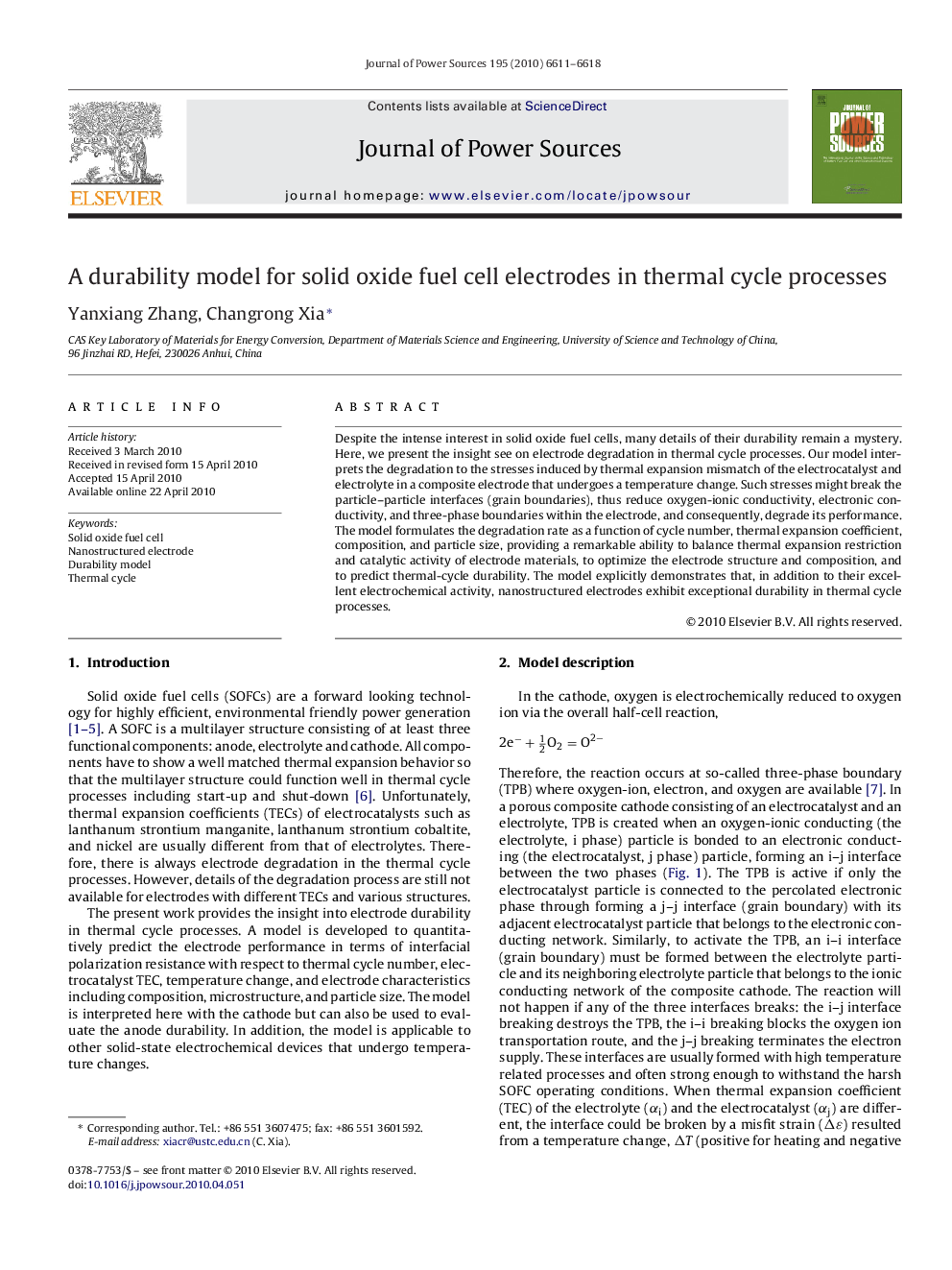| Article ID | Journal | Published Year | Pages | File Type |
|---|---|---|---|---|
| 1289387 | Journal of Power Sources | 2010 | 8 Pages |
Despite the intense interest in solid oxide fuel cells, many details of their durability remain a mystery. Here, we present the insight see on electrode degradation in thermal cycle processes. Our model interprets the degradation to the stresses induced by thermal expansion mismatch of the electrocatalyst and electrolyte in a composite electrode that undergoes a temperature change. Such stresses might break the particle–particle interfaces (grain boundaries), thus reduce oxygen-ionic conductivity, electronic conductivity, and three-phase boundaries within the electrode, and consequently, degrade its performance. The model formulates the degradation rate as a function of cycle number, thermal expansion coefficient, composition, and particle size, providing a remarkable ability to balance thermal expansion restriction and catalytic activity of electrode materials, to optimize the electrode structure and composition, and to predict thermal-cycle durability. The model explicitly demonstrates that, in addition to their excellent electrochemical activity, nanostructured electrodes exhibit exceptional durability in thermal cycle processes.
